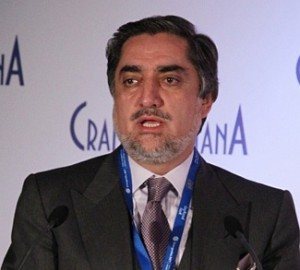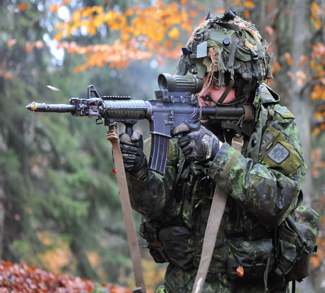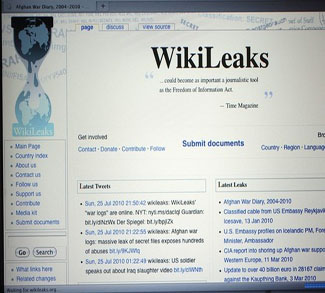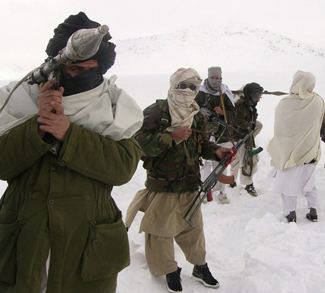2014 will be one of the toughest tests yet for Afghanistan’s shaky democracy. In addition to the usual issues of voter fraud and Taliban attacks, these elections will hopefully mark Afghanistan’s first democratic power transition. With incumbent Hamid Karzai ineligible to run for re-election, a cast of his former powerbrokers are vying for power against the backdrop of an ongoing Taliban insurgency and an imminent withdrawal of NATO forces. The winner will be met with a full-plate of issues, including the country’s deteriorating security situation, troop number negotiations with Washington, and stalled peace talks with the Taliban.
This year’s election will be a litmus test for Afghanistan’s decade-long effort to move beyond warlord politics and establish the conditions for a peaceful transition of power
Candidates
Though Afghanistan has seen large numbers register as candidates, the election has crystalized into a three-way race between the following:
Abdullah Abdullah (National Coalition of Afghanistan)
Abdullah Abdullah heads the National Coalition of Afghanistan (Etelaf-e Milli), a loose coalition of politicians opposed to Karzai. Abdullah was the runner-up in 2009 elections, having lost to Hamid Karzai in the runoff poll. Half Tajik and half Pashtun, Abdullah has had a difficult time appealing to Pashtun voters. However, he has cultivated a fair amount of support by virtue of having lived the majority of his life in Afghanistan, rather than abroad as many of his opponents have. This has helped give him the image of being able to better understand the issues that are important to average Afghans. He is also the secretary general of the Massoud Foundation, a health care and education NGO.
Abdullah favors a deal with Washington to keep American troops in the country beyond the 2014 pullout date, as well as establishing warmer relations with regional powers like China, Pakistan, and Russia. Though previously opposed to peace talks with the Taliban, Abdullah now supports more negotiations. He is one of the election’s front-runners.
Ashraf Ghani Ahmadzai (Independent)
Since losing to Karzai by a wide margin in the 2009 elections, the technocratic Ghani has made a strong comeback. Ghani has the support of Afghanistan’s educated elites. He is Pashtun, who are typically dominant in Afghanistan’s south, but he has built a significant base of support in the country’s east as well. In 2011, he was appointed co-ordinator of the security handover from NATO to the Afghan military, allowing Ghani to travel across the country and meet with local military and political leaders, building up cross-country networks. Having lived in the United States, together with his credentials as a prominent intellectual (ex-finance minister, worked at the World Bank, university chancellor, and a one-time UN secretary general nominee), Ghani has a fair amount of support in the West, who see him as the most reform-minded candidate in this election.
Ghani is running with Abdul Rashid Dostum, an Uzbek warlord who fought against the Taliban during the civil war of the 1990s. Dostum brings with him a large block of ethnic Uzbek and Turkmen votes in Afghanistan’s north, who view him as a guarantor against the Taliban. Pairing with a figure as controversial as Rostum, however, has cost him support among young pro-reform voters.
Zalmay Rassoul
Former minister of foreign affairs in Hamid Karzai’s government, Zalmay Rassoul is a doctor by profession. Like Ghani, Rassoul is Pashtun, and is also considered to be a pragmatic technocrat. Rassoul has the tacit support of outgoing president Karzai, who encouraged his brother Qayum Karzai to drop out of the race and throw his weight behind Rassoul. Karzai has remained officially neutral, but should this change, he could mobilize significant levels of support for Rassoul’s bid. He is viewed with suspicion, however, given his poor command of the Pashto language and for being unmarried.
Three Key Issues to Watch
Security and the Washington connection
Security is unsurprisingly the biggest issue affecting both the election and Afghanistan’s future. An attack on the offices of the Independent Election Commission on Saturday March 29 served as a very overt reminder of the country’s tenuous security outlook. Afghanistan’s police and armed forces will be hard-pressed not to repeat the mistakes of the 2009 presidential election, and ensure that violence on election day is stopped or at least suppressed.
This is no easy task in light of the Taliban’s blunt message to use “all force at its disposal” to disrupt the elections. Militants have attacked campaigners, foreigners, police stations, and in a particularly daring example, attacked the IEC’s headquarters. The ramped-up attacks have led to the large-scale departure of foreigners, which threatens to hamper independent monitoring on election day.
ISAF soldiers are set to pull out at the end of 2014, leaving the country’s security objectives squarely in the hands of the Afghan National Army. Afghanistan’s next president will also have to contend with stalled talks with Washington concerning any future US troop presence in the country.
Electoral fraud
Ballot disruption has been a serious issue in past elections. With a literate population of only 28%, the basic logistics of Afghanistan’s election are immense, taking weeks to count and tabulate the country’s votes (experts expect the winner to take office by August at the earliest). The 2009 elections were marred by voter fraud, including the registration of phantom voters, closing of certain polling stations, and outright bribery. It is quite likely that this will happen again, adding another layer of complication to the IEC’s job. Curbing fraud requires multi-pronged solutions from both the IEC and from the candidates themselves. Vulnerable polling stations should be identified and assigned increased security, while candidates should work to rein in their supporters.
Ethnic and tribal divisions
A hallmark of Afghanistan has long been the division and animosity between the country’s various ethnic and tribal groups. The presidential candidates are only too aware of the need to bridge these divides. The current field of candidates is hardly neatly-divided – both Ghani and Rassoul are competing for Pashtun votes, and Ghani’s running-mate Dostum has allowed him to make inroads in Abdullah’s northern heartland.
Allegations of ethnic imbalance in the 2009 elections proved to be a major issue. The Pashtun-dominated regions in the south, making up nearly 40% of Afghanistan’s population, were considered too dangerous for polling stations to be set up. This kept voter turnout low in these areas, leading to a widespread sense of disenfranchisement among Afghanistan’s largest ethnic group. The 2010 parliamentary elections saw the same scenario play out in Ghazni province. Though its population is mixed Pashtun and Hazara, all 11 members of parliament elected were Hazara, leading to months of instability. If a similar situation unfolds this year, many fear that it could drive many Pashtuns into the arms of the Taliban and fuel the insurgency.
Economic Impact
It is without question that the winner of Afghanistan’s election faces a multitude of problems. Afghanistan’s GDP has grown consistently since 2002, but the country is still plagued by grinding poverty and widespread corruption. Opium production in Afghanistan is currently at record levels, presenting a double-edged sword: cultivation is a large source of income for the Taliban and corrupt officials, but it is also a key crop for many of the country’s poorest farmers. The election’s winner will have to walk a fine line in dealing with this issue.
The discussion of Afghanistan’s economic future is intimately tied to its security. The country holds vast mineral reserves – some 1400 fields – containing more than $3 trillion worth of deposits. The economic potential of these sites has gone untapped because of the ongoing insurgency. Should a lasting peace agreement be struck with the Taliban, Afghanistan could harness these commodities and begin a new era of international investment and economic development.




